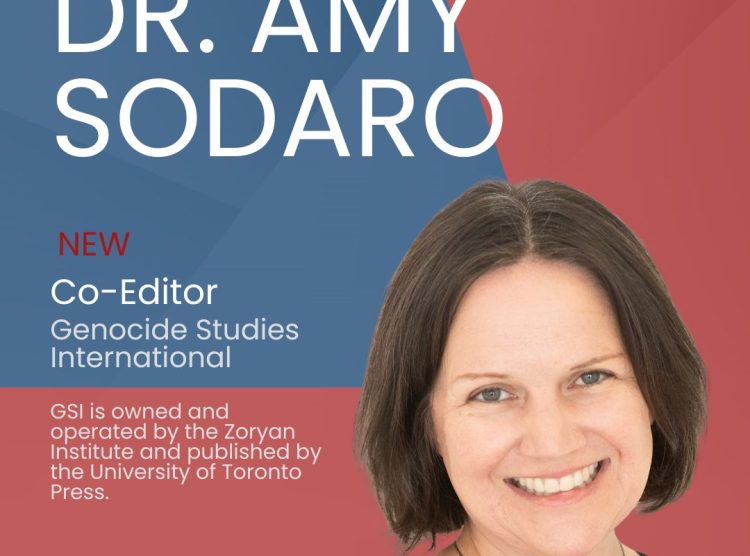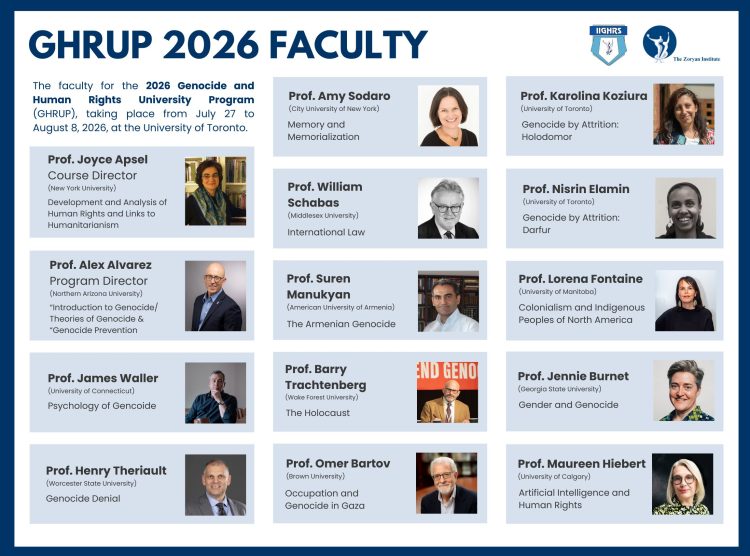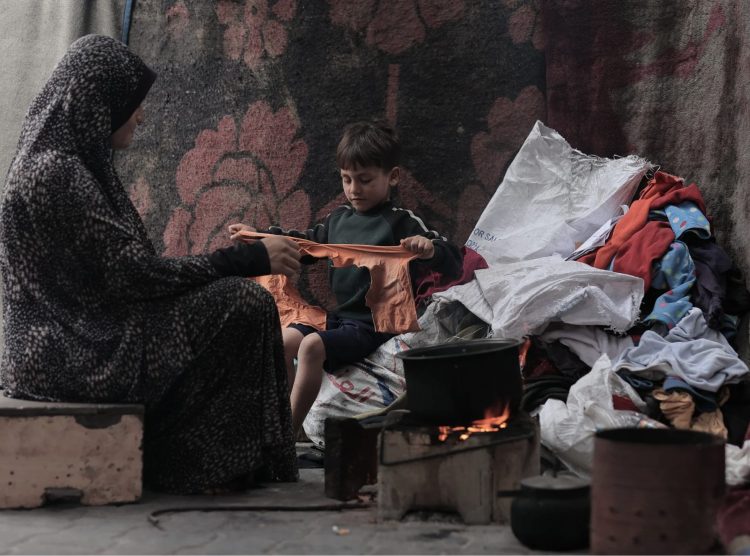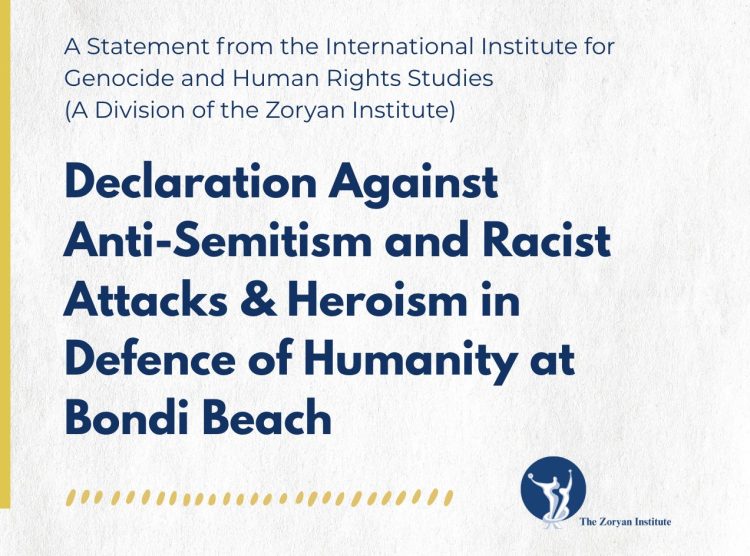Article
Commemorating National Indigenous Peoples Day: ZI Releases Webinars in Indigenous Studies across the Americas on Streaming Platforms
20 Jun 2025
Toronto, ON, June 21st – National Indigenous Peoples Day is a day for Canadians to recognize and celebrate the unique heritage, diverse cultures, and outstanding contributions of First Nations, Inuit, and Métis peoples to Canada. In acknowledgment of this day, the Zoryan Institute is re-releasing a selection of its webinars on topics in Indigenous Studies across the Americas as audio podcasts. Making them available to stream on platforms including Spotify, Apple Podcasts, and Acast, this new format offers listeners an accessible way to engage with critical conversations on Indigenous issues and embrace our collective responsibility to understand the legacies of colonialism.
The Zoryan Institute has compiled the selection of webinars into a playlist titled “Indigenous Perspectives: Colonialism, Genocide, and Resilience.” Featuring four insightful talks by leading scholars in the field, the series explores the effects of colonial systemic violence, climate justice, and Indigenous knowledge. Through this newly available resource, the Zoryan Institute encourages educators, students, and the general public to confront historical silences surrounding Indigenous genocide to advance the path toward reconciliation.
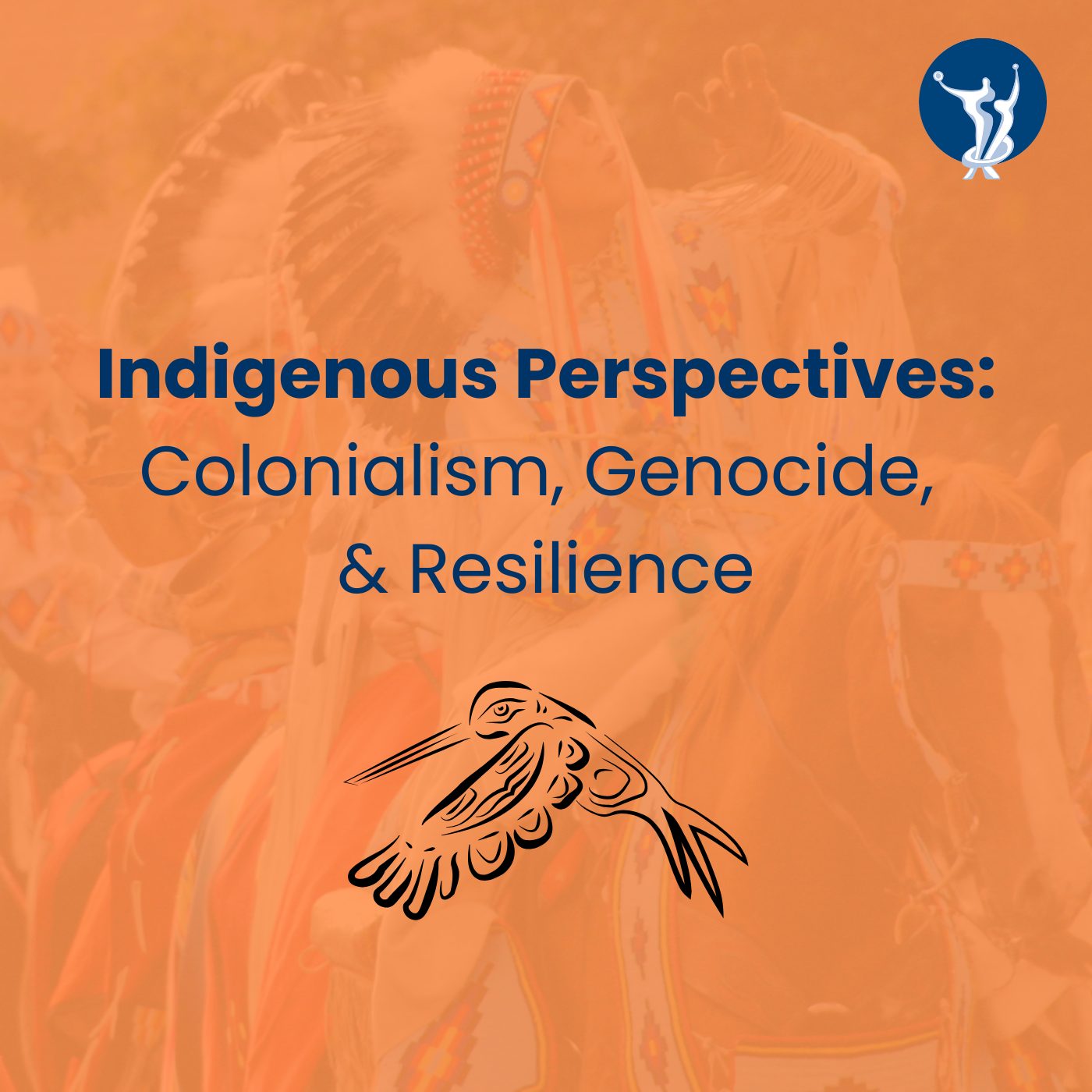
Playlist Cover: "Indigenous Perspectives: Colonialism, Genocide, & Resilience."
The series includes:
EPISODE 1: “Indigenous Peoples of North America” with Prof. Lorena Fontaine
In this episode, Prof. Fontaine discusses the impact of colonialism on Indigenous Peoples in North America, with a focus on the loss of Indigenous languages. She explores how language is deeply tied to identity, culture, and rights, and why its revitalization is essential to reconciliation and justice.
Listen to Episode 1 here.
EPISODE 2: “Indigenous Peoples of Brazil: A Case for Genocide?” with Prof. Flavio de Leao Bastos Pereira
In this episode, Prof. Pereira discusses: Indigenous nations in Brazil are facing worsening violations of their human rights such as invasions of their traditional lands which is a fundamental basis of their lives and cultures; fires that destroy biomes caused by invaders; state violence and government proposals that restrict their rights. Is it possible to identify this as a genocidal process?
Listen to Episode 2 here.
EPISODE 3: “Maples are People: An Indigenous Critique of Ecocide, Genocide, and the Human/Nature Dualism” with Prof. Lauren Eichler
In this episode, Prof. Eichler explores topics such as ecocide, the colonial ideologies behind it, and the impacts on Indigenous Peoples. She explores how the dualistic and racist Western-colonial conceptions of “human” and “nature” have harmed Indigenous communities in three related ways: by delegitimizing Indigenous environmental ontologies, identity, and ethics, by dehumanizing Indigenous peoples, and by enabling the ecocide-genocide of Indigenous lands and peoples. The presentation also considers the value and limitations for Indigenous peoples of making ecocide an international crime.
Listen to Episode 3 here.
EPISODE 4: “Indigenous Peoples, Colonialism, and Climate Justice” with Prof. Deborah McGregor
In this webinar, hosted as part of the Zoryan Institute’s 2022 Climate Change, Human Rights & Genocide Webinar Series, Professor Deborah McGregor examines the relationships between indigenous peoples, rights, and colonialism that perpetuates injustice. She also explains why Indigenous leadership and knowledges are critical for advancing climate justice goals, and how climate impacts render Indigenous communities disproportionately vulnerable (e.g. the disruption of traditional food sources, lack of health infrastructure, barriers to accessing clean water).
Listen to Episode 4 here.
Listeners can find these episodes on the Zoryan Institute’s official streaming platforms (Spotify, Apple Music, Amazon Music, and Acast) beginning June 20, 2025. The Institute encourages educators, students, and the general public to explore these conversations as part of ongoing learning and reflection on Indigenous struggles.
For more information, visit www.zoryaninstitute.org or follow the Zoryan Institute on social media for updates on its available programming.
The Zoryan Institute (Toronto office) wishes to acknowledge the land on which it operates. For thousands of years, it has been the traditional land of the Huron-Wendat, the Seneca, and most recently, the Mississaugas of the Credit River. Today, this meeting place is still the home to many Indigenous people from across Turtle Island. The Institute, its staff, and affiliates are grateful for the opportunity to work on this land.


